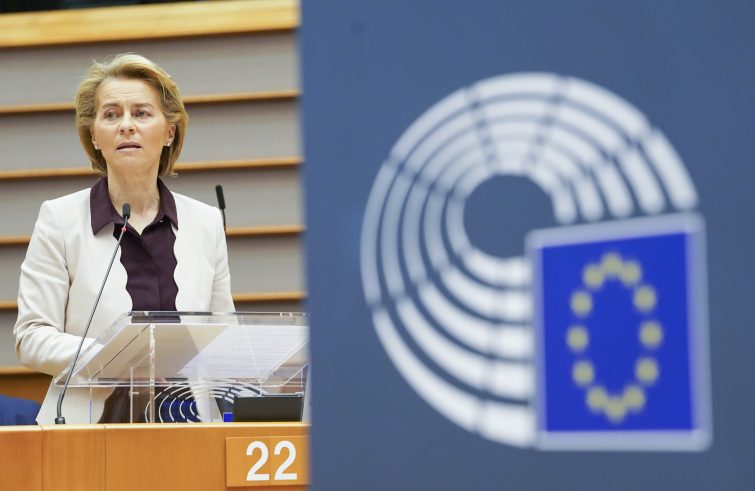
The 1,800 billion package that the heads of State and Government agreed upon in Brussels in the last few days has landed at the European Parliament. It was presented to the MEPs by Charles Michel, president of the European Council, and by Ursula von der Leyen, president of the EU Commission, themselves, who, along with Angela Merkel, current president of the EU, held the reins of the difficult mediations. Charles Michel uses triumphal words as he presents it: this is the “greatest” response to the crisis “ever deployed by either the USA or China”. It is a “turning point” for Europe, because it is the first time that collective loans are being decided upon to fund the expenses, it is the first time the budget is related to climate ambitions as well as to the rule of law. The agreement shows that Europe is “a force for action” and, unanimously voted on – Michel points out –, it is “strong and ambitious for Europe and for Europeans”, it is “well balanced, fair and innovative”. And then he explains it to the MEPs. “Covid has shaken us, we will never be as we were before”, he concludes, but this agreement is a “sign of trust and soundness that we send to Europeans and to the world”. Then, the floor was taken by Ursula von der Leyen (in the photo): for the president of the EU Commission too, the agreement is a “European watershed”, a “unique recovery tool to support the worst crisis” in the history of Europe. As far as the Recovery Plan is concerned, she admits that the ‘grants’ are “less than those proposed by the EU Commission, but more than they were when we started to talk about them”, she praises a number of points of the Plan, including the 30% of the funds being conditional on a green transition and the intention to “protect the rule of law and the economic interests” at the same time. But, as to the multiannual financial framework, she admits that “it is a bitter pill to swallow” because of the resources allocated to the European programmes: “They have all been increased, but not the way we would have wanted”, she tries to justify. However, she is open to dialogue and negotiations with the European Parliament, which must “have a full say in the matter”, confident that “something epoch-making may be achieved”, in the name of solidarity and of the search for joint solution.
